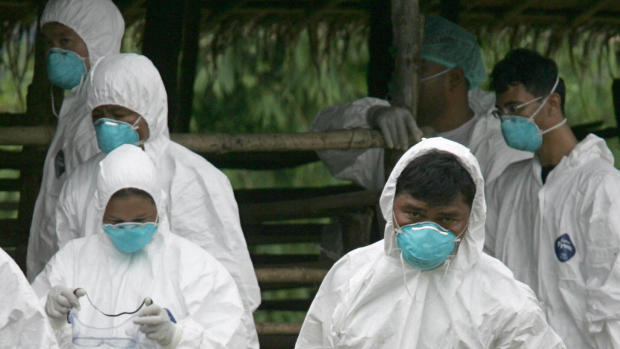Mysterious bacteria claims another life in the Midwest
A bacterial infection called Elizabethkingia has already claimed at least 20 lives in Wisconsin and Michigan. Now, the first case has been confirmed in Illinois and has taken another life, reports CBS Chicago.
Kimberly Cencula, 52, from Lake Villa, Illinois, is the first person in that state to contract the mysterious bacteria and die from it. It's unknown right now exactly how she was infected with Elizabethkingia.
"It's a bacteria that exists normally in the environment," said Dr. Nirav Shah, director of the Illinois Department of Public Health. "It exists in water and soil. It's everywhere around us."
Shah says the bacteria is relatively new.
Elizabethkingia infections first appeared in Wisconsin last fall. There have been 57 confirmed cases of illness there and 19 deaths, according to the Wisconsin Department of Health Services. There has also been one confirmed case and death in Michigan.
"It is an area of intense scientific investigation right now," Shah said. "We are working very closely with the Wisconsin Department of Health."
Infectious disease expert Dr. James Malow, with Advocate Medical Group in the Chicago area, said, "Even with the CDC up there working with the Wisconsin Department of Health, they haven't found where it's coming from."
The bacteria poses greater risk for older people and those with serious underlying health problems. "The majority of individuals who are affected are over the age of 65 and almost all of them have some prior health condition," Shah said. "As a result of that, we don't think that this is a bacteria that poses a general risk to the population."
A family member of the latest victim told CBS Chicago that Cencula had an underlying health issue.
Symptoms of the infection can include fever, chills, cough, joint pain and in some cases, a skin condition.
Doctors said the bacteria is not transmitted person to person.
There are still more questions than answers.
"How it is transmitted?" Shah said. "How is it spread? What sort of diseases does it cause and how can we manage it? Those are very intense areas of investigation right now."
The CDC confirms Cencula's test results show the same strain as the cases in Wisconsin.
Illinois state investigators are now interviewing Cencula's family members and others in her social network to try and narrow down the origin.
The bacteria got its name from the microbiologist Elizabeth King, who discovered it in 1959.
